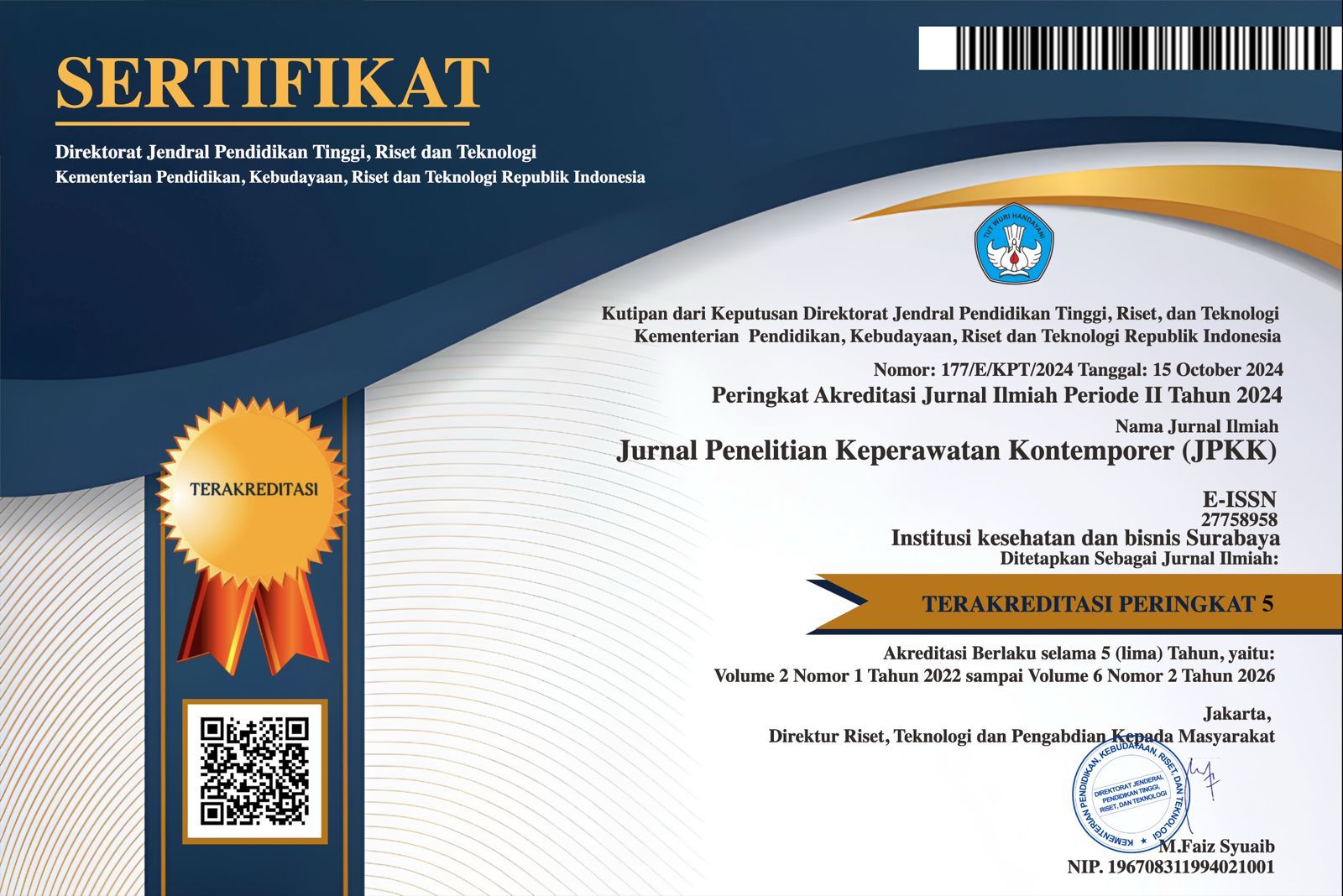EFEKTIVITAS PROGRAM EMPOWERMENT STRUKTURAL TERHADAP KEPUASAN KERJA PERAWAT: SYSTEMATIC LITERATURE REVIEW
DOI:
https://doi.org/10.59894/jpkk.v5i4.1016Keywords:
pemberdayaan struktural, kepuasan kerja perawat, lingkungan praktik profesionalAbstract
Background: One of the causes of low job satisfaction among nurses is an unsupportive or disempowering work environment. The concept of structural empowerment explains that when nurses are given access to information, support, resources, and development opportunities, their job satisfaction improves. However, stronger evidence is still needed to confirm its effectiveness. Objective: To systematically evaluate the effectiveness of structural empowerment-based intervention programs in improving nurses’ job satisfaction in clinical settings. Methods: This systematic review was conducted according to the PRISMA 2020 guidelines. Article searches were focused on the PubMed, CINAHL, and Scopus databases for publications from January 2020 to December 2025. Inclusion criteria consisted of controlled trials (RCTs and quasi-experimental designs) implementing structural empowerment interventions (such as shared governance, mentoring programs, or participatory leadership) aimed at nurses, with outcomes measuring job satisfaction using validated instruments. Results: A total of ten studies (6 RCTs and 4 quasi-experimental) involving 2,158 nurses across six countries met the inclusion criteria. Eight out of ten studies reported a statistically significant increase in job satisfaction scores (p<0.05) in the intervention groups. The most notable improvements were observed in domains such as autonomy, control over practice, and professional relationships. Two studies found no significant difference, which was attributed to the short duration of the interventions. Conclusion: Existing evidence consistently shows that well-structured and management-supported structural empowerment programs effectively enhance nurse job satisfaction. The implementation of shared governance demonstrates the strongest and most sustainable impact. Further research is needed in the form of multisite RCTs with long-term follow-up and cost-effectiveness analysis to support broader generalization and adoption as a nursing management standard.
Keywords: Structural empowerment, Shared governance, Nursing, Systematic review
Downloads
Published
How to Cite
Issue
Section
License
Copyright (c) 2025 Nurul Baslia, Trisye Yolanda Rumbe, Marintas, Nirwana Alef Lamma, Nabilla Mayasari

This work is licensed under a Creative Commons Attribution 4.0 International License.
All articles published by Jurnal Penelitian Keperawatan Kontemporer (JPKK), the authors hold the copyright under license Creative Commons Attribution License.











